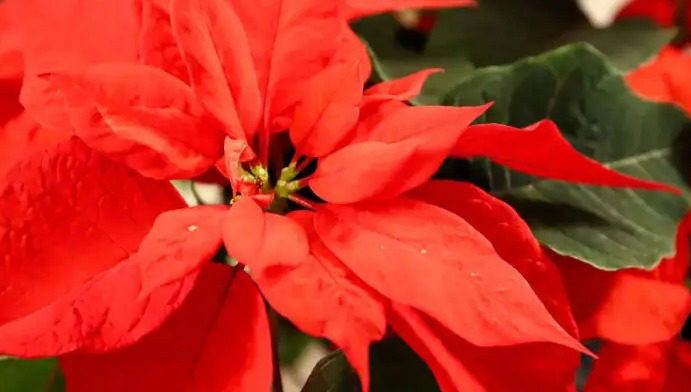Poinsettias are beautiful but can be quite demanding. They require a lot of attention and care to make sure they stay healthy and happy all year long. But do you know how often should you water your poinsettia?
The answer is important because it will help keep the plant alive and well. By the end of this guide, you’ll know how often to water poinsettias. Let’s get started…
How Often Do You Water Poinsettias?
Generally, it’s best to water a poinsettia every day with a small amount of water. This will keep the soil damp, but it will also prevent the plant from being too wet or sitting in water.
You don’t want the soil to dry out, so water when you notice the top few inches of soil drying out. The exact amount of water you use depends on many factors, so it’s best to check the soil every day.
For example, if it’s very hot and the plant is sitting in direct sunlight, it will need more water and you should check and water every day. On the other hand, if the poinsettia is not in direct sunlight and it’s not very hot, you can wait to water every other day.
Can I Give Tap Water to My Poinsettia?
Only give your poinsettia water if it has no chlorine or fluoride. If the tap water contains chemicals, let the water sit overnight so these chemicals can evaporate before giving them to your plant. These chemicals can cause stress, which may result in yellow leaves.
Can I Use Bottled Water on My Poinsettia?
Bottle water is not good for your poinsettia because it’s expensive and has fewer nutrients than other types of water.
The best option is to use filtered or purified water that you get from the tap, but only if there are no chemicals in it (see above). If using bottled water, make sure it does not contain chlorine, fluoride, or any other chemicals.
Can I Use Cold Water on My Poinsettia?
No, using cold water can shock the roots and damage them. Always use room temperature water when watering your poinsettia, soil or pot included. Poinsettia plants hate the cold.
How Much Water Should I Use on Poinsettia?
Water your poinsettia with a small amount until the soil becomes saturated. It’s best to use a little bit of water on a frequent basis, rather than loads of water all at once!
I generally use a cup of water of my poinsettia every morning (when I drink my morning coffee). This keeps the soil moist but not wet, and it means I don’t have to worry about forgetting to water my plant!
What Happens if I Overwater My Poinsettia?
Overwatering a poinsettia is very bad for it. This can cause root rot and other problems that will eventually kill the plant over time.
Water your poinsettia until the soil becomes saturated, but make sure there’s no standing water in the pot or tray! If you notice any puddles of water after watering, wait a few minutes and then pour them out.
Root rot is a serious issue, so it’s best to avoid overwatering your poinsettia as much as possible. If root rot has already taken hold, then you should inspect the roots and prune any that are black and mushy.
Overwatering can also lead to fungal growth, which can cause the leaves to turn brown and fall off. This is common if you’re watering your poinsettia too much, especially in humid conditions where fungi can grow quickly.
What Happens if I Underwater My Poinsettia?
Underwatering a poinsettia is also bad for it, but not as serious as overwatering. If you don’t water your plant enough, the leaves will start drooping and changing color.
The bottom leaves may even fall off if you forget to water them! This can be very difficult because they are so bright and festive.
If this happens, don’t panic! There are some things you can do to save your plant. Try adding more water and see if the leaves perk up. If they don’t, try misting it with a spray bottle or giving it an extra drink of water in another way.
Conclusion
In conclusion, it is important to know how often you should water your poinsettia. Use the specific guidelines mentioned in this guide and then check the soil every day to make sure it’s not too dry or wet. If there are any questions, feel free to contact me for further help!
Tim is an avid gardener from the UK. He was the founder of PlantCarer.com from 2021 to Sep 2023. He sold PlantCarer.com to Aaron. He has since started his own business called Seed To Supper, which provides new gardeners all the materials you need in a box (pots, seeds, compost and instructions) to grow your own delicious and nutritious vegetables and herbs from start to finish – no garden required.

